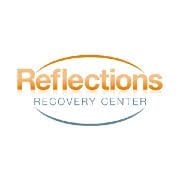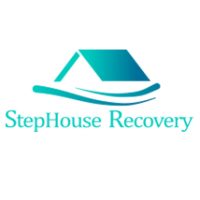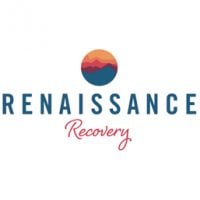Cooper Fellowship
Drug Rehab Center in Santa Ana, California
- Opioid Addiction
- Dual Diagnosis
- Alcoholism
The Cooper Fellowship in Santa Ana, California offers personalized and accredited substance abuse treatment with a comprehensive approach that includes cognitive behavioral and family therapy, sober living support, educational programs, and resources for family members.
About This California Facility
Cooper Fellowship in Santa Ana, California, is a drug treatment center that specializes in treating individuals suffering from alcoholism, opioid addiction, and dual diagnosis. As an accredited facility by the Substance Abuse and Mental Health Services Administration (SAMHSA), Cooper Fellowship follows strict quality standards to provide effective and evidence-based treatment to their clients. They offer a range of levels of care, including inpatient treatment, dual-diagnosis programs, and sober-living/half-way houses. With a focus on personalized care and long-term recovery, Cooper Fellowship is dedicated to helping individuals overcome addiction and achieve lasting sobriety.
At Cooper Fellowship, individuals struggling with alcoholism, opioid addiction, or dual diagnosis receive comprehensive and tailored treatment. Their services encompass various therapeutic approaches, counseling, and support programs, offering a holistic approach to recovery. Through their inpatient treatment program, clients receive intensive therapy and medical support in a structured environment. Cooper Fellowship also provides dual-diagnosis treatment, addressing co-occurring mental health disorders alongside addiction. Additionally, they offer sober-living and half-way house options to support clients transitioning back to independent living while still benefiting from a supportive environment. With a focus on individualized care and a commitment to evidence-based practices, Cooper Fellowship strives to empower individuals on their path to recovery.
Genders
Ages
Modality
Additional
Accreditations
SAMHSA
Conditions and Issues Treated
Opioid addiction treatment should be done in a medically supervised drug rehab. Opioid addiction treatment will include detoxification and drug rehab counseling to help both the user and their loved ones learn how to live a successful sober lifestyle. Methadone, buprenorphine, and naltrexone are three medications that can help treat opioid addiction. Individual drug rehab counseling sessions can be helpful to discuss any questions or concerns with the drug treatment program.
When addiction and psychiatric issues co-occur, the addict’s recovery is more successful when both conditions are treated. A dual diagnosis refers to a condition in which the patient is diagnosed with two health issues: addiction and bipolar disorder.
Usually, dual diagnosis sufferers are prescribed a combination of treatments for each condition. The most common therapies are psychotherapy, behavioral therapy, spiritual counseling, 12-step programs, and medication management.
Psychiatric conditions are an obstacle to recovery because they can create roadblocks to a healthy lifestyle. Drugs and alcohol may be used as a means of self-medication, which can have dangerous consequences. Over time, addicts build up a tolerance and suffer withdrawal symptoms when drug use is stopped.
With the proper treatment, dual diagnosis sufferers can overcome their conditions and achieve lasting sobriety.
Levels of Care Offered at Cooper Fellowship
This center offers a variety of custom treatment tailored to individual recovery. Currently available are Dual-Diagnosis, Inpatient, Sober-Living / Half-Way, with additional therapies available as listed below.
Inpatient treatment is an option that provides addicts with a supportive environment in which they can stop using. This type of intensive care and supervision is appropriate for those who were unable to quit on their own or need more structure than they could get from outpatient treatment, such as the addict most in need of this level of care.
The goal of inpatient rehab is for the addict to stay focused on sobriety and remain free of mood altering substances. Inpatient treatment programs usually offer the following: detox, therapy groups, one-on-one counseling, medication management and aftercare planning.
Sober Living Homes are used in drug rehab to help former addicts maintain sobriety. The staff provides the residents with a safe and supportive living environment to learn how to live a sober life. The staff members also provide the residents with resources to equip themselves better to live a sober life. They also provide them with opportunities for exercise, many of which encourage learning coping mechanisms that will be helpful later on.
Therapies & Programs
Family therapy is a crucial part of drug treatment and getting sober. It is one of the most effective ways to help addicts stay on the path to long-term sobriety. When a drug addict decides that they want to try and get sober, it takes the support of every person they love to succeed. It can be incredibly difficult for loved ones to watch an addict go through the pain and suffering of withdrawal, but by being there with them and supporting them, they can help to make sure that the addiction never returns.
One of the most important parts of family therapy is the relapse prevention plan. During treatment, therapists and doctors will often sit down with the addict and their family to develop a plan in case the addict ever feels like they want to use again. This plan should involve steps the addict and family can take together to prevent them from relapsing in the future. An addict’s family can play a vital part in helping them to avoid relapse because they can spot the warning signs and help them get back on track before it becomes too much of a problem.
Cognitive Behavioral Therapy (CBT) is a common therapeutic approach to help drug addicts. It teaches addicts new ways of thinking and behaving so that they can avoid relapse. There are several forms of CBT used in drug rehabilitation centers.
Cognitive Restructuring helps addicts identify faulty, negative thinking so that they can work together with the therapist to find healthier ways of thinking, resulting in better decision-making.
Cognitive Behavioral Therapy for Addiction uses the principles of CBT to help treat addiction. It focuses on specific aspects of each person’s thinking, feeling, physiology, and behavior. It aims to identify specific problems in these areas and create a personalized treatment strategy.
Payment Options Accepted
For specific insurance or payment methods please contact us.
Additional Details
Specifics, location, and helpful extra information.
Santa Ana, California 92703 Phone Number(714) 554-1152 Meta DetailsUpdated November 25, 2023
Staff Verified
Patient Reviews
There are no reviews yet. Be the first one to write one.
Santa Ana, California Addiction Information
More than 3 million of California's citizens are addicted to illegal drugs. Almost 800,000 people use hard drugs, almost 5 million use marijuana, and another 2.1 million abuse alcohol every year. Other substance abuse issues such as binge drinking and teen drug use are also common. Many illegal drugs such as cocaine, heroin, methamphetamine, and marijuana are smuggled into the state from Mexico.
The drug addiction problem in Santa Ana, California, is relatively bad. There were 319 drug-related deaths in Santa Ana from 2006 to 2015. 5% of high school students report using cocaine. Drug addiction and abuse can lead to criminal activity, joblessness, homelessness, and family violence. Methamphetamine and marijuana are commonly abused in the town. Most rehab facilities will begin with an evaluation to determine the best course of treatment.
Treatment in Nearby Cities
- Temecula, CA (48.9 mi.)
- Fountain Valley, CA (2.8 mi.)
- Colton, CA (42.5 mi.)
- Oakhurst, CA (265.6 mi.)
- Topanga, CA (44.8 mi.)
Centers near Cooper Fellowship

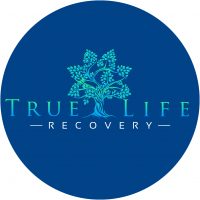
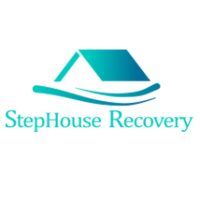
The facility name, logo and brand are the property and registered trademarks of Cooper Fellowship, and are being used for identification and informational purposes only. Use of these names, logos and brands shall not imply endorsement. RehabNow.org is not affiliated with or sponsored by Cooper Fellowship.


